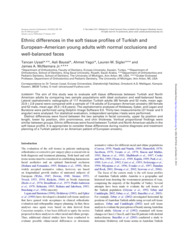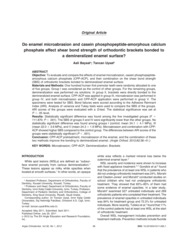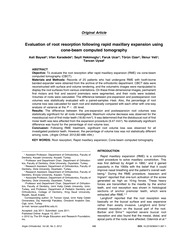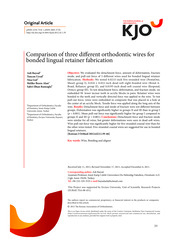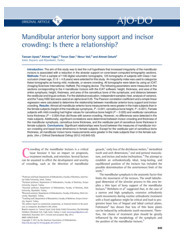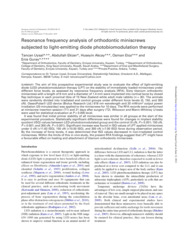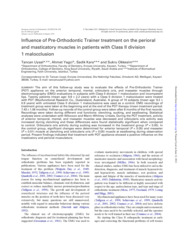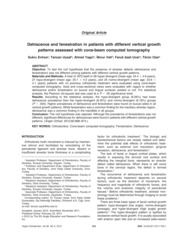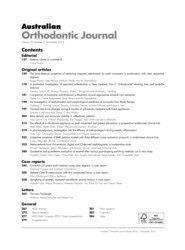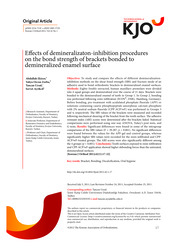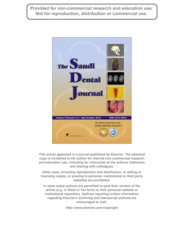Filtreler
Filtreler
Bulunan: 11 Adet 0.000 sn
Ambargo Durumu : Erişime Açık ✕Yayın Tarihi : 2012 ✕Yayın Dili : eng ✕Tür : Makale ✕Koleksiyon : KLİNİK BİLİMLER BÖLÜ ... ✕Koleksiyon : KLİNİK BİLİMLER BÖLÜ ... ✕Koleksiyon : FAKÜLTELER ✕Tam Metin : var ✕
Koleksiyon [4]
İlgili Araştırmacılar [5]
Ambargo Durumu [1]
Tam Metin [1]
Veritabanı [1]
Eser Sahibi [5]
Tür [1]
Yayın Tarihi [1]
Yayıncı [7]
- The E. H. Angle Education and Research Foundation 3
- European Orthodontic Society 2
- The Korean Association of Orthodontists 2
- AMERICAN JOURNAL OF ORTHODONTICS AND DENTOFACIAL ORTHOPEDICS 1
- Australian Society of Orthodontists 1
- Oxford University Press on behalf of the European Orthodontic Society 1
- The Saudi Dental Journal 1
Kayıt Giriş Tarihi [6]
Yayın Dili [1]
Konu Başlıkları [20]
- Cone-beam computed tomography 2
- Bonding 1
- Bonding and aligner 1
- Bracket 1
- Brackets 1
- CPP-ACP 1
- Cephalograms 1
- Cephalometry 1
- Craniofacial morphology 1
- Decalcifi cation 1
- Dehiscence 1
- Demineralization 1
- Ethnic differences 1
- Fenestration 1
- Hyoid bone 1
- Mandibular incisors 1
- Microabrasion 1
- Mouth breathing 1
- Oral hygiene 1
- Orthodontic miniscrews 1 Daha fazlası Daha az
 ŞÜKRÜ ENHOŞ
ŞÜKRÜ ENHOŞ